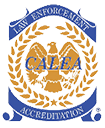Know Your Tow - Public Awareness
In an effort to ensure compliance with legislation and to educate the public on best practices and consumer protection laws, Brantford Police Service is providing the following information to assist consumers in the event they should need their vehicle towed.
Many neighbouring police services have received complaints from motorists who have been charged excessively high fees for towing their vehicles after collisions or to have their vehicles released from storage yards. Other reports received include drivers feeling pressured to pay cash for services or being required to sign fraudulent paperwork
Brantford Police Service is encouraging drivers to know their rights under Ontario law. To reduce uncertainty and potentially uncomfortable roadside situations, we advise drivers refer to the CAA Towing Bill of Rights.
Towing Bill of Rights:
- You have the right to decide who can tow your vehicle and to what location (unless otherwise directed by police).
- A "permission to tow” form must be signed before towing starts, unless you have an auto club membership.
- The towing company must provide you with an itemized invoice before receiving payment.
- The final bill cannot be more than 10% above the quoted price.
- If you choose, you have the right to pay by credit card.
- During business hours, you can access your vehicle to get your personal items, while it is stored at a towing facility.
- A tow operator must notify you where your vehicle will be towed.
- Tow operators must disclose if they are receiving a financial incentive for towing your vehicle to a particular vehicle storage facility or repair shop.
To protect yourself, Brantford Police Service offer the following tips:
- Know what your insurance policy covers. See if you have roadside assistance coverage and what the limits are. If you have been in a collision, find out how your car insurance company handles towing and how much your insurer will cover.
- Call your insurance company for direction on tow companies, repairs and car rentals.
- Don’t let a towing operator take your vehicle until you view a Government of Ontario Towing Consumer Bill of Rights. You should be shown a towing and storage rate sheet listing towing fees, daily storage fees (if any), and all other miscellaneous charges.
- You are entitled to a receipt for tow services rendered.
- Decline offers to store your vehicle in a tow compound unless directed by your insurer.
- Make sure that the company name on the tow truck matches the documentation and do not agree to a demand for cash payment to release your vehicle without consulting your insurance company first
- Never sign a blank contract.
- Do not give out your insurance information to the tow operator. Some fraudulent tow operators will use this information for additional scams, like calling the victim and pretending to be their insurer or providing it to a health practitioner.
If you suspect fraud or if the tow truck driver refuses to leave, call the police.
What is "chasing” in the tow truck industry?
"Chasers” in the tow truck industry listen to radio scanners and rush to accident scenes. They will often use high-pressure, fraudulent tactics to obtain business from motorists.
For example, one tactic consumers should be aware of is the work order bait and switch. In this situation, a motorist is asked to sign forms believed to be an authorization to tow, only to later realize they have signed a work order. The vehicle is then towed to a shop and held until the services are paid for. If payment cannot be made, or the insurer refuses to pay, the repair shop is authorized to sell the vehicle under the Repair and Storage Liens Act. Some "chasers” have arrangements with dishonest body shops to receive payment for these actions.
Always read every document you sign and NEVER sign a blank contract.
IN THE EVENT OF A COLLISION
- Drivers should contact their insurance company and record the following important details that may be needed to file a police report or insurance claim:
- Location, date and time of collision
- Other vehicle(s) involved – make, model and license plate number
- Name and driver’s license of other driver(s)
- Name of insurance company and policy #
CALL THE POLICE IF:
- Someone is injured
- You think the other driver may be guilty of a Criminal Code offence, such as impaired driving
- You suspect you’re the victim of a staged collision
- There is damage over $2000
- There is damage to public or private property
- The other driver fails to remain at the scene
If it is safe, move your vehicle to the side of the road. If you can’t drive your vehicle, turn your hazard lights on or use warning triangles or flares. Taking photos at the scene with your cellphone, if safe to do so, is a good idea.
Additional Information:
Consumer Protection Act General Rules for Towing:
www.ontario.ca/page/guide-towing-and-vehicle-storage-service-providers#section-2
Financial Service Commission of Ontario:
www.fsco.gov.on.ca/en/auto/brochures/Pages/brochure_scamtips.aspx
Anyone with concerns regarding illegally operating tow-trucks can report them to the Brantford Police Service online at www.brantfordpolice.caor 519-756-7050. Anonymous information can be submitted by contacting Brantford-Brant Crime Stoppers at 1-800-822-TIPS (8477).


